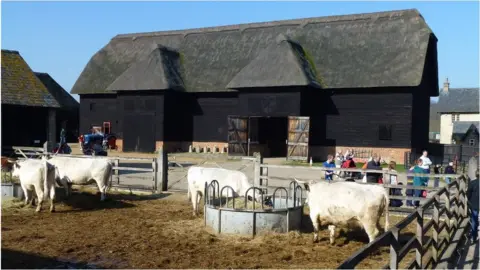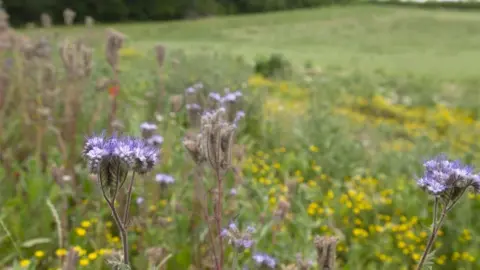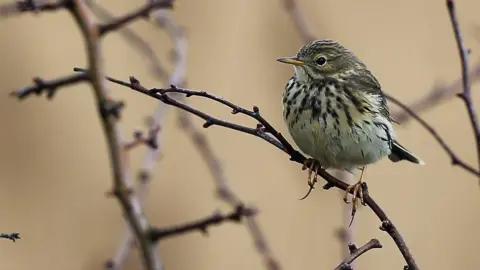National Trust nature friendly Wimpole farm 'can be profitable'
 Richard Humphrey/Geograph
Richard Humphrey/GeographAn audit of an organic farm shows "how nature-friendly farming and a profitable farm business can go hand in hand", its owners said.
The National Trust said Wimpole Hall Farm in Cambridgeshire recorded a £117,588 profit on a turnover of £294,617 last year.
Meanwhile, a "health check" showed numbers of breeding birds, such as skylark, had doubled since 2013.
The income figure from last year also included EU subsidies.
 Phil Morley/National Trust/PA
Phil Morley/National Trust/PA During its 12 years of operation, the National Trust said its sustainable farming methods included planting 1,000 trees and using rare breed livestock to graze meadows.
While acknowledging that livestock emit greenhouse gases such as carbon dioxide and methane, Callum Weir, farm manager at Wimpole, said animals were the "perfect tool" to manage Grade I listed parkland and traditional hay meadows.
"We want to farm sustainably at the same time as being a truly viable business and it's fantastic to see how nature friendly farming and a profitable farm business can go hand in hand," he said.
Wimpole's carbon audit found that measures to manage the soil, alongside managing woods and hedges, helped the landscape soak up 2,260 tonnes of carbon dioxide a year.
 Getty Images
Getty ImagesThe wildlife health check found:
- 1,145 invertebrate species such as bees, ants and butterflies
- 95 of these species were rare, such as the large garden bumblebee and the cinnabar moth
- skylarks, in decline in the wider countryside, had increased from 12 pairs in 2013 to 21 pairs
- between five and eight pairs of corn buntings breeding each year
- between three and seven pairs of breeding linnets
The findings were published as the Agriculture Bill setting out the UK's post-Brexit farming policy, with a focus on paying farmers to deliver "public goods" such as boosting wildlife and preventing flooding, is due to be debated in the Lords.
Environmentally-friendly farming must not be undermined by food imports that fail to meet UK standards after Brexit, the National Farmers' Union warned.

Find BBC News: East of England on Facebook, Instagram and Twitter. If you have a story suggestion email [email protected]
